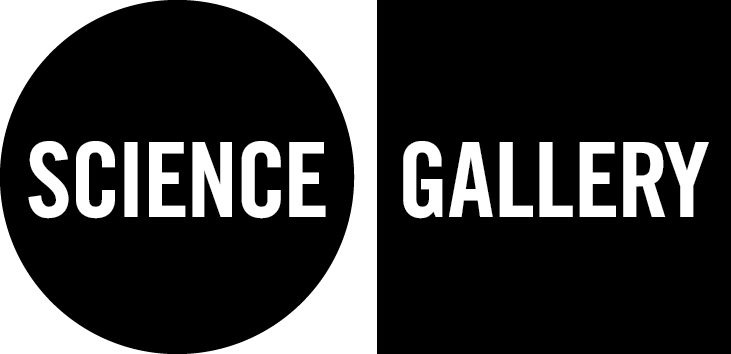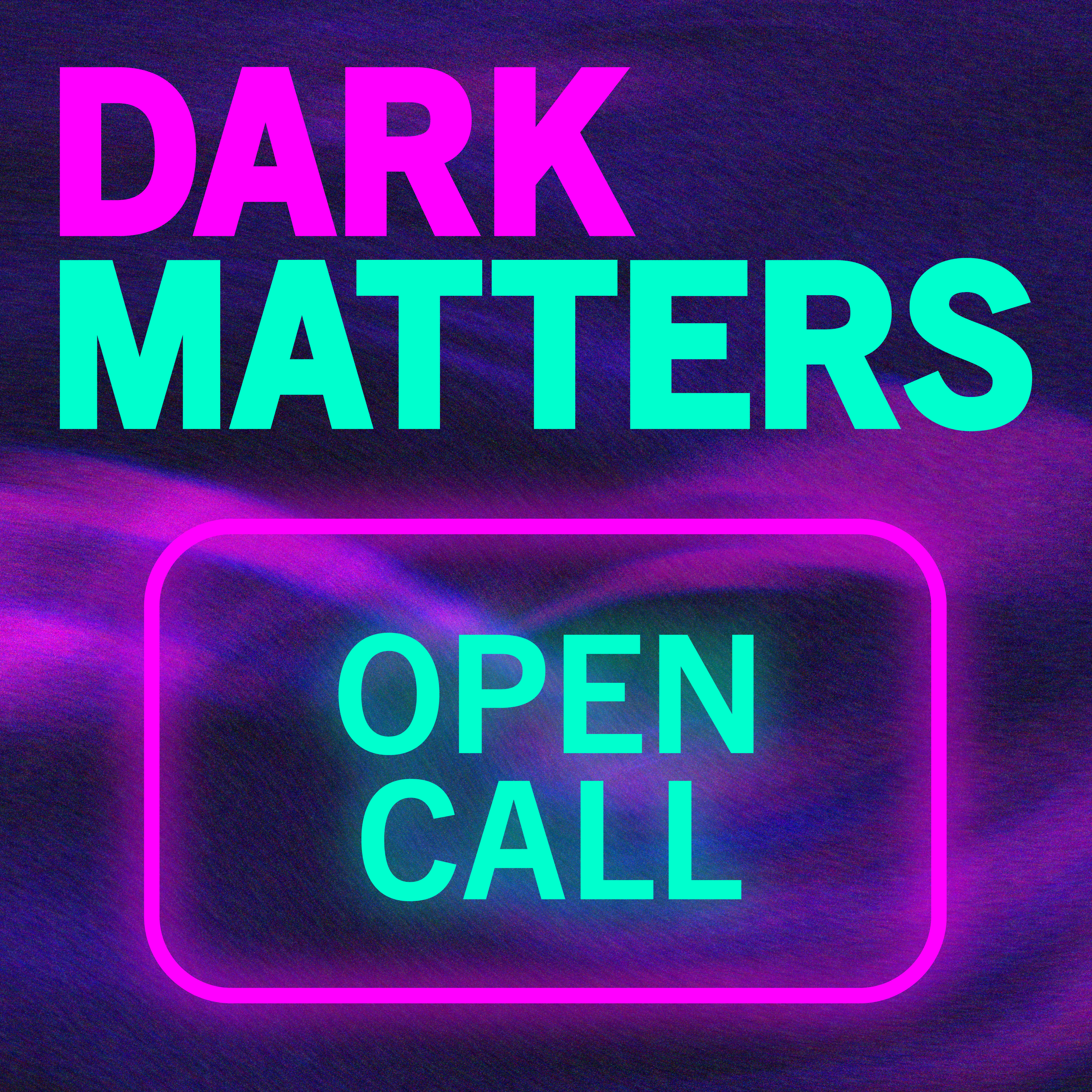SCIENCE GALLERY AT THE UNIVERSITY OF MELBOURNE
CALL CLOSED
Open from July 8th 2022 to August 5th 2022
Deadlines:
Friday 5th August 23:59 AEST
Friday 5th August 15:59 CEST
Friday 5th August 8:59 EST
View the Open Call in Spanish, Portuguese and Japanese
Keywords: Dark matter, dark energy, taboo, unseen, time, technology, science, space, measurements, data, modelling, forces, magic, environments, tools, planet, life, existentialism, cultural practice, family, ancestry, community, ethics, climate change, social justice, race, futurism, energy, imagination, future, light, dark, urgent, formlessness, cognition
Science Gallery Melbourne is inviting proposals for projects to be included in our 2023 exhibition ‘Dark Matters’. This open call is extended to everyone, from every level of experience and from every discipline and every culture. First Peoples, Queer, CALD, BIPOC, Neuro-diverse, Disabled People and people from the Deaf community are encouraged to apply.
Dark Matters explores the fundamental essence of life and the universe and how so much of it remains a mystery to us. We don’t know what makes up about 95% of our universe – which we believe is dark energy (70%) and dark matter (25%). Dark matter consists of a mysterious substance that does not present an interaction with electromagnetic forces, which means it does not absorb, reflect it, or emit light.
In an era defined by the power of modelling data, technology and simulations, the search for dark matter can be seen as a symbol of the limits of our cognitive experience - will we ever fully understand it? What other unseen or unspoken materialitys and forces are at play in our lives? How can the search for dark matter help us imagine new possibilities for life, and our relationship with non-human entities and systems? How can we build creative technologies and tools that help us access new environments and understandings that are undefinable, unmeasurable, and unsettling? We want to consider how the hypothesis of dark matter changes how we think about ourselves, both on an individual level and on a planetary and universal scale.
This open call invites you to propose projects, tools, scenarios, and relational experiences that enable a deeper exploration of this extraordinary experience we call life and nature and all the dark matter that flows under it, runs through it and collides with it.
Potential subthemes:
· Speculations about dark matter and the unknowns and mysteries of our universe
· The future of science, technology, and life on Earth
· How we envisage the future and whether we imagine a better world or not
· The elementary nature of things and our understanding of them
· The disappearance of time and our subjective experiences of this
· How we view things in our own image and the limits of this
· Unseen, unspoken or taboo ideas or forces
· The continuously expanding universe, a curved spacetime born 14 billion years ago
· Dart matter as a social metaphor for urgent conversations around critical race theory, social justice, and the climate emergency and the underlying forces that make these things an issue
· Family, ancestry, community, and the invisible bonds that tie us together through space and time
· First Peoples knowledges and cultural practices and their contributions to our understanding of the universe, Indigenous and Afrofuturism.
DARK MATTERS will be curated in collaboration with Mónica Bello, Head of Arts at CERN and a curatorial panel of young people. The exhibition will be developed in collaboration with Arts at CERN and the ARC Centre of Excellence for Dark Matter Particle Physics with the support of an expert panel.
Some considerations:
You can respond directly to these ideas, or you can think laterally; we love an idea that is head-scratching, then eyebrow-raising, and then pupil dilating as we become awed by the brilliance of your mind. And, of course, you can raise a related question or subtheme we have not even considered yet!
We look for creative proposals that really consider the audience’s experiences and disrupt the idea that galleries are places where you only view things. We also love projects that are experimental, take risks, produce new knowledge, raise new questions, or provide new experiences that have the potential to change the way someone thinks. And most of all, we love projects that are interesting to the young people (15–25-year old's) who are at the heart of everything we do.
Projects can be new, in-development or existing works that have already been presented. They can take any form and involve any equipment or materials. The exhibition will be on for approximately 4 months, so this should be taken into consideration. However, projects can be evolving and dynamic and continue to experiment with time and space and take risks over this time.
Typically, projects selected via our open calls are funded for up to $8,000 AUD (Australian Dollar), which would include all fees, materials, and travel costs. In this application, we are just looking for a general sense of your project’s viability within this scope, and budgets will be discussed if your project makes it to the second stage of interviews. Projects with co-funding will be considered (please include confirmation letters with your support material or demonstrate your plan to secure it and contingencies for downscaling the work if the extra funding is not secured).
FAQs
Great. We love questions. Have a read through these extra bits first to see if they help.
When are where will this show happen?
Dark Matters will happen in the second half of 2023 for 4 months.
Who can apply?
Anyone. There are no restrictions on age, education level, research background, country or any other factor. We especially encourage submissions from young people and First Nations people.
Do I have to submit a written application?
We want you to apply in the format that is easiest for you. You can submit in these formats:
Written
Video, uploaded via Vimeo or YouTube
Auslan video
Audio
Can individuals or groups and collaborations apply?
We welcome submissions of interest from individuals, groups, collaborative projects, companies and organisations working locally or internationally.
Hang on, is this a touring show? Didn’t Science Gallery London have a show called Dark Matter a few years ago?
Well spotted! This isn’t a re-curation of that show but a completely new show that explores some similar themes including the fundamental essence of life, the universe and how so much of it remains a mystery to us. If you were part of Dark Matter in London or Invisible in Dublin you’re most welcome to apply for this new show in Melbourne.
How big is the exhibition space?
Science Gallery has approx. 1,000 square metres of exhibition space with wide-open areas, moveable walls, large glass windows, natural light, and high ceilings. The main gallery space is approx. 800 square meters with a ceiling height of 5.5m. As a very general guide, the average amount of space each project gets is 3m x 3m.
How do you decide which projects are included?
At Science Gallery Melbourne, we embed young people in every stage of the process. The projects we receive through this open call will be reviewed and hotly debated by our curatorial panel. This panel is made up of young people, Science Gallery Melbourne staff and academic/industry experts. If your proposal makes it to the shortlisting stage, you will then meet and discuss your project with the Science Gallery team in person or on a video call. This will most likely happen around August/September 2022.
How many projects will be included?
We’re not sure as it will depend on the size of the projects that go in the gallery. The final gallery will have between 10-15 works installed in the exhibition. There are all sorts of other opportunities to collaborate with us on talks, performances, poetry battles, dance-offs, apps, outreach programs, school programs, citizen science projects, or pop-ups.
What kind of project formats are accepted?
Science Gallery isn’t a traditional gallery space. We’re not too keen about just plonking things on plinths for people to look at. We love interactivity and inviting our visitors to participate in the installations. We welcome projects across all forms - that could include digital, physical, immersive, game-based, video, sound, imagery, interactive, sculpture, web-based work, live research experimentation, data mining, medical, or natural science research – essentially, we are not format-prescriptive, and we love weird creative ideas.
We also accept proposals for projects that aren’t physical installations. Your project could be online only or at another site. It would still have to really connect with Science Gallery, our audience and the Breaking the Binary season and you’d have to really convince us about that in your submission.
Who are your audience?
Young people are at the centre of all things we do. 70% of our audience are under 30 years old and all our exhibitions will be created with young people for young people. It’s important that you think about how this audience will connect with your work.
What sort of projects are your favourite?
We’re so glad you asked. Science Gallery’s approach is interdisciplinary, so we especially love to see the creativity that erupts from the collision of different disciplines. That means:
If you are an artist, then we’d love your project to include collaboration with people from other fields – scientists or engineers or technologists or designers…. The list goes on.
If you are a researcher, we’d love your project to include collaboration with creative practitioners not in your field.
Don’t panic if you haven’t connected with a collaborator, we can hook you up if you are selected. It really is the ‘vibe of the thing’ that we are after at this point.
Will this season include new or existing work?
Projects can be brand new and need development or may have already done the rounds at other galleries, museums or festivals.
Can I submit an anonymous application?
We won’t publicise your name without your permission. If you are selected to be in the show, and you would rather have your work displayed anonymously, we will work with you along that journey. It can be for whatever reason; pragmatic, cultural, religious, or for risk-taking.
When will I get an answer?
Once the open call closes, we will convene the curatorial panel to review the submissions, make a short list, and meet with all those people to discuss in more detail. This will most likely happen in the second half of 2022, with outcomes announced by the end of the year.
If I’m shortlisted, does it mean I am successful?
No. It means the panel really liked your idea and thinks it would work well in our DARK MATTERS season. The next step is meeting with us to discuss your idea in more detail and to talk more seriously about budgets and timelines and all that jazz.
Can I receive feedback on my application if I am not shortlisted?
Sorry but it’s not possible due to the volume of applications we receive. Feedback is only available to proposals that make the shortlist when they meet with the Science Gallery team.
I don’t really have a project to pitch, but I work in this area, and I’d love to be involved.
Let’s gloss over that this isn’t technically a question to say: Fantastic! We want to know about your practice. Come join us as we embed research and knowledge within the fabric of all our programs. We want to connect you with the public, creative practitioners, academics, and industry both locally and globally. Get in touch - melbourne.sciencegallery.com/research
Other network-wide Frequently Asked Questions are answered here. https://sciencegallery.org/faqs
Ask questions! If you’re unsure about an aspect of your proposal, email info@Melbourne.sciencegallery.com
Please note that we are using a new system – called Submittable – to accept open call submissions. If you had an account with us on our old system, you would need to create a new account with Submittable in order to submit to current and future open calls.




